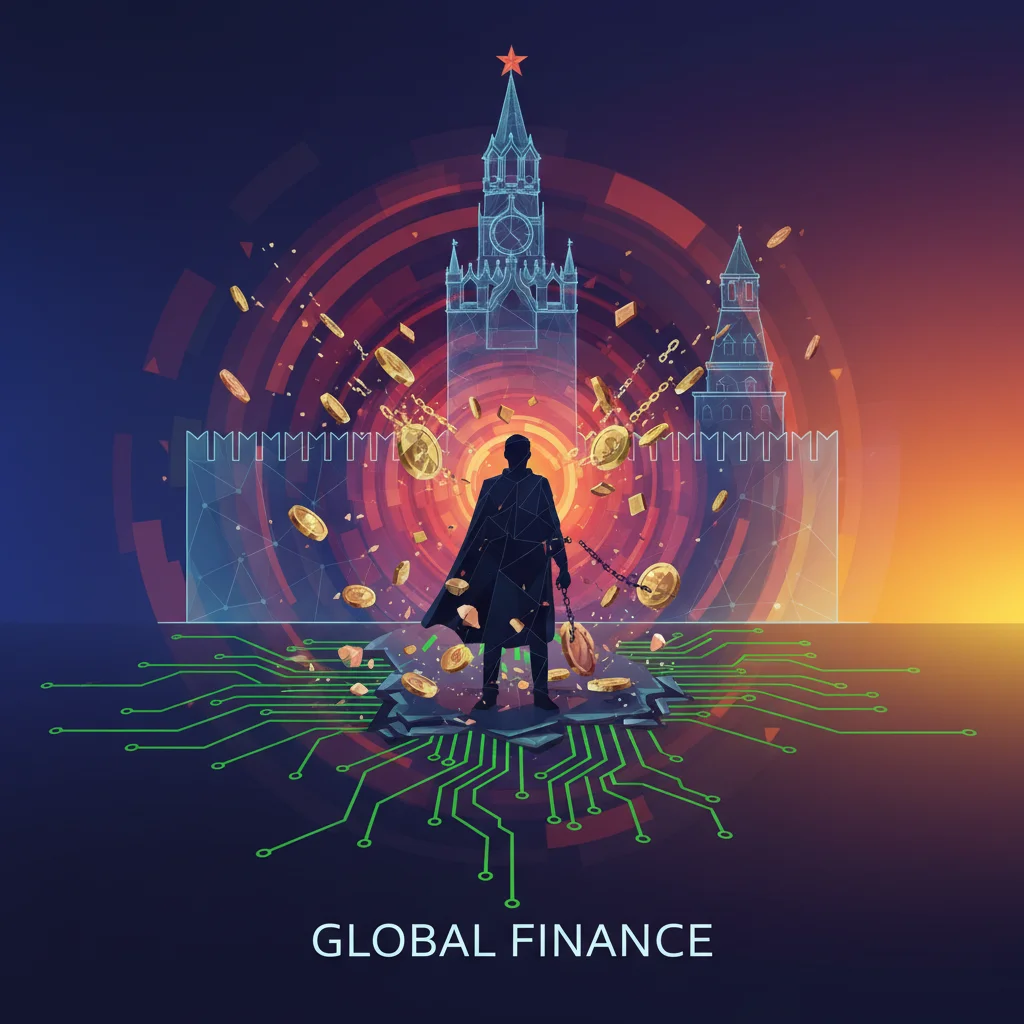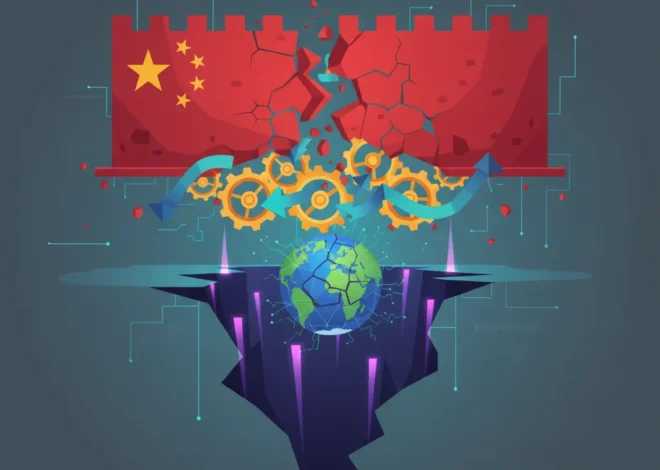
Kremlin’s Old Ghost: Why New Charges Against a Former Oligarch Rattle Global Finance
In a move that echoes the tumultuous post-Soviet era, Russia’s Federal Security Service (FSB) has once again set its sights on a familiar adversary: Mikhail Khodorkovsky. The former oil magnate, once Russia’s richest man and now a prominent dissident in exile, faces fresh accusations of plotting a coup. The FSB has launched a new criminal case against him and 22 other exiled opposition figures, alleging they are “organizing the activities of an undesirable organization,” a charge that carries significant weight in the Kremlin’s playbook. According to the Financial Times, this legal maneuver targets the Anti-War Committee of Russia, a group of exiled figures co-founded by Khodorkovsky to oppose the invasion of Ukraine.
For the casual observer, this may seem like another chapter in the long-running saga of President Vladimir Putin’s crackdown on dissent. However, for those in the world of international finance, investing, and global business, this development is far more than a political headline. It’s a critical signal about the internal pressures within Russia, the escalating nature of geopolitical risk, and the long-term stability of the Russian economy. To understand its full impact, we must look beyond the charge sheet and delve into the history, the economic context, and the chilling message it sends to the global market.
A History Etched in Oil and Power: The Yukos Affair Revisited
To grasp the significance of Khodorkovsky’s name in 2024, one must travel back to the early 2000s. Mikhail Khodorkovsky was not just a businessman; he was the embodiment of Russia’s “Wild West” capitalism. As the head of Yukos Oil Company, he transformed a floundering state asset into Russia’s most transparent and valuable corporation, attracting billions in foreign investment and adopting Western-style corporate governance. At its peak, his wealth was estimated to be around $15 billion, making him a titan of the global energy sector.
His downfall was as swift as his rise was meteoric. In 2003, after publicly clashing with Putin over state corruption, Khodorkovsky was arrested on charges of fraud and tax evasion. What followed was a highly politicized trial that resulted in a decade-long prison sentence and the systematic dismantling of his empire. Yukos was bankrupted and its prime assets were absorbed by the state-controlled oil giant, Rosneft. This event, known as the “Yukos Affair,” became a landmark case study in expropriation risk and the fragility of property rights in Russia. It sent a shockwave through the international investing community, demonstrating that in Putin’s Russia, the rules of the game could change overnight, and no private asset was truly safe from the Kremlin’s reach.
The new charges are a stark reminder of that history. They signal that the Kremlin’s memory is long and its appetite for neutralizing opposition, no matter how distant, is insatiable. For business leaders and investors, this reinforces a fundamental principle of geopolitical risk assessment: past behavior is often the best predictor of future actions.
The Economic Fortress Under Siege
The timing of these accusations is not coincidental. They arrive as the Russian economy navigates the unprecedented pressure of Western sanctions, a protracted war in Ukraine, and increasing internal strains. While Moscow has projected an image of economic resilience, the underlying data reveals a system under immense stress. The Kremlin is pouring a third of its national budget into defense, a level not seen since the Soviet era, while grappling with labor shortages, inflation, and technological isolation.
This renewed focus on exiled dissidents can be interpreted as a move to quash any potential rallying point for discontent, both at home and abroad. It’s a classic authoritarian tactic: when facing external and economic pressure, create and persecute internal enemies to consolidate power and distract the populace. This action has direct implications for anyone analyzing the Russian stock market or the stability of its banking sector. It suggests a leadership that prioritizes political control over economic pragmatism, a red flag for any form of long-term investment.
To better understand the landscape, let’s examine some key economic indicators for Russia since the full-scale invasion of Ukraine.
| Indicator | Pre-Invasion (2021) | Post-Invasion Status (2023-2024 Est.) | Implication for Investors |
|---|---|---|---|
| Central Bank Key Rate | 8.5% | Peaked at 16% (source) | High borrowing costs, attempt to curb rampant inflation, stifles non-military economic growth. |
| Military Spending (% of GDP) | ~3.6% | Estimated at over 6% | Massive diversion of resources from productive sectors to a war economy, creating long-term structural weakness. |
| Access to SWIFT | Full Access | Major banks disconnected | Significant friction in international trade and finance, forcing reliance on less efficient alternative systems. |
| Foreign Direct Investment (FDI) | $38.8 Billion | Net outflow, major corporate exodus (source) | Extremely high risk of asset seizure, near-zero confidence from international capital markets. |
The data paints a clear picture: Russia is operating a wartime economy, increasingly isolated from the global financial architecture. In this context, the government is exploring every avenue to maintain stability, including pushing for alternative financial technology and payment systems to circumvent sanctions. Some analysts even point to the potential for state-level use of blockchain-based assets for international settlements, though the practical application remains limited. The persecution of figures like Khodorkovsky is part of this larger strategy of total control in a high-stakes environment.
The Global Ripple Effect: Beyond Russia’s Borders
The implications of this event extend far beyond Moscow. For global business leaders, it serves as a powerful case study in geopolitical risk management. The key takeaway is that political risk in authoritarian states is not a static variable; it is dynamic and can escalate without warning.
1. The Chilling Effect on Emerging Markets: While Russia is an extreme case, this move contributes to a broader sense of caution regarding investments in countries with weak rule of law. It reinforces the premium on political stability and predictable legal frameworks, potentially diverting capital towards more stable, albeit lower-yield, markets.
2. Energy Market Volatility: Khodorkovsky is a symbol of Russia’s oil industry. Any sign of heightened political instability within Russia, a major global energy supplier, can introduce volatility into oil and gas trading markets. Traders and analysts will be watching closely for any signs that internal power struggles could impact production or export policies.
3. Precedent for Transnational Repression: The targeting of dissidents abroad sets a dangerous precedent. It signals a willingness to extend domestic legal battles across international borders, creating a more complex and hazardous environment for multinational corporations whose employees may be critical of various regimes.
Conclusion: A Barometer of Risk in a Fractured World
The FSB’s new case against Mikhail Khodorkovsky is more than a legal filing; it is a barometer of the Kremlin’s mindset and a critical data point for the global financial community. It exhumes the ghost of the Yukos affair, reminding investors of the ultimate supremacy of state power over private capital in Russia. It reflects the immense pressures of a wartime economy, where political consolidation trumps all other considerations.
For anyone involved in international economics, finance, or strategic business planning, this story is a potent reminder that headlines from Moscow are not just about politics. They are about the fundamental risks and rewards that define the modern global market. In a world where geopolitical fault lines are deepening, understanding the “why” behind an accusation like this is no longer just good analysis—it’s essential for survival.


